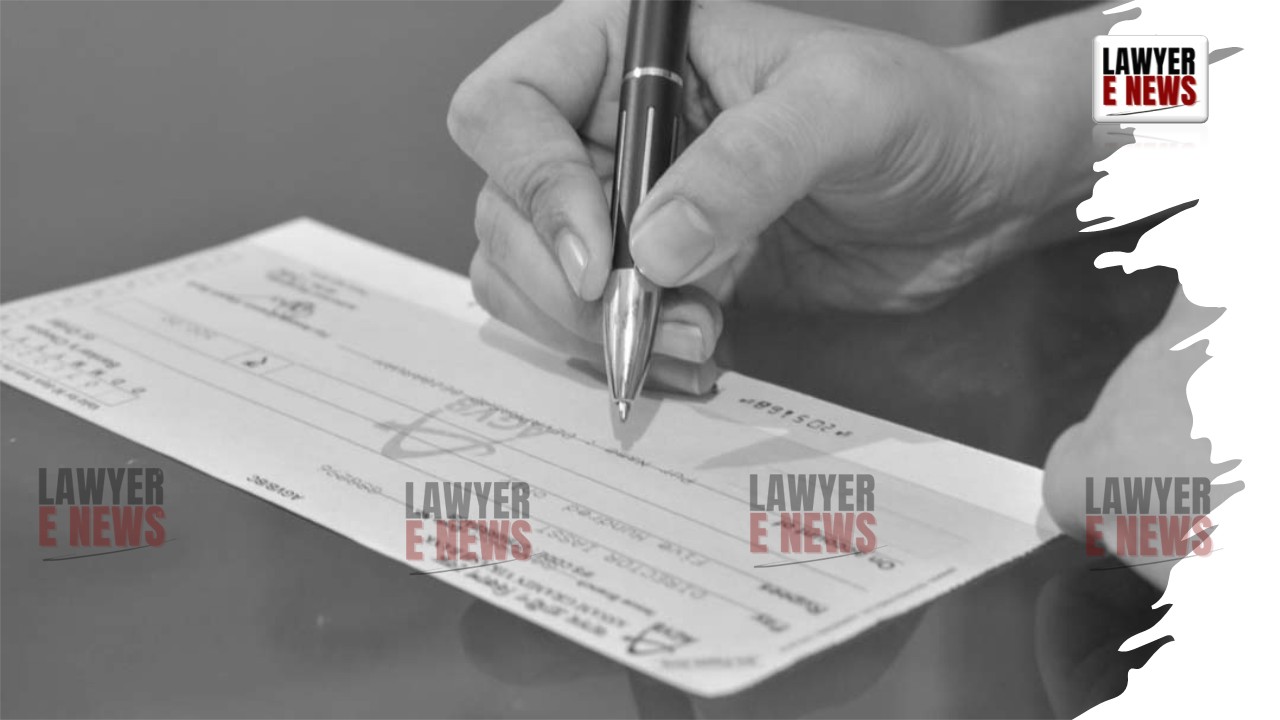-
by Admin
16 February 2026 5:45 AM



Once Execution of a Promissory Note is Proved, the Burden of Rebuttal Shifts to the Defendant - Madras High Court dismissed a second appeal challenging concurrent findings of fact by the trial court and the first appellate court. Justice R. Hemalatha upheld the decree in favor of the plaintiff for recovery of ₹37,890/- under a promissory note, ruling that the plaintiff had proved execution of the note, while the defendants failed to rebut the statutory presumption of validity under Section 118 of the Negotiable Instruments Act, 1881 ("NI Act"). The court reiterated that findings of fact cannot be interfered with in a second appeal under Section 100 of the Code of Civil Procedure, 1908 unless they are perverse, based on no evidence, or contrary to law.
"The Plaintiff Proved Execution Of The Promissory Note, And The Defendants Failed To Rebut It"
The case arose out of a suit filed by the plaintiff, Karuppasamy, seeking recovery of ₹37,890/- along with interest at 12% per annum. The plaintiff alleged that the deceased, Rasappa Gounder, borrowed ₹35,000/- on May 5, 1998, and executed a promissory note (Ex.A1) in his favor, promising to repay the principal amount on demand. Following the death of Rasappa, the plaintiff issued a legal notice to the legal heirs (defendants), demanding repayment. The defendants denied any knowledge of the promissory note, alleged forgery, and claimed that there was no necessity for Rasappa to borrow money.
The trial court decreed the suit in favor of the plaintiff, holding that the execution of the promissory note was proved and that the defendants had failed to rebut the presumption under Section 118 of the NI Act. The first appellate court affirmed this decision. The fourth defendant, R. Sumithra, filed the present second appeal, arguing that the concurrent findings were based on irregular appreciation of evidence.
Justice Hemalatha, rejecting the appellant’s contention, observed: "The plaintiff has proved the execution of the promissory note by examining himself and one of the attesting witnesses (PW2). Both the trial court and the first appellate court have rightly held that the defendants failed to discharge the burden of rebutting the presumption of validity under Section 118 of the Negotiable Instruments Act."
"Minor Inconsistencies In Witness Testimonies Do Not Discredit The Core Facts"
The appellant argued that contradictions between the testimonies of the plaintiff (PW1) and the attesting witness (PW2) rendered their evidence unreliable. The primary contention was that PW1 claimed PW2 was present at his house until 9:00 a.m. on the date of execution of the promissory note, whereas PW2 stated he left for work at 8:30 a.m.
Dismissing this argument, the court stated: "Minor inconsistencies in the recollection of events occurring 10 years prior to trial do not discredit testimony if the core facts remain corroborated. The evidence of PW1 and PW2 clearly establishes that the deceased executed the promissory note in their presence, and PW2 left for work only after the execution was completed."
The court further noted that PW2 identified the signature of the deceased on the promissory note during his testimony, stating:
"The attestor (PW2) deposed that he signed Ex.A1 as a witness in the presence of the plaintiff, the deceased Rasappa Gounder, and the scribe. He also identified the signature of Rasappa Gounder on the promissory note, proving its execution."
The High Court found that the concurrent findings of the trial court and first appellate court were based on well-reasoned appreciation of evidence and were not vitiated by any irregularities.
"The Scope Of Second Appeal Under Section 100 CPC Is Limited To Substantial Questions Of Law"
The appellant contended that the findings of the lower courts were perverse and contrary to law, thereby raising a substantial question of law under Section 100 CPC. The High Court rejected this contention, observing:
"The jurisdiction of the High Court under Section 100 CPC is confined to substantial questions of law only. Sufficiency or adequacy of evidence to support a finding of fact is a matter for the courts of fact and cannot be agitated in a second appeal."
Citing the decision of the Supreme Court in Madamanchi Ramappa v. Muthalur Bojjappa (1964) 2 SCR 673, the court emphasized:
"The High Court cannot reappreciate evidence in a second appeal or interfere with findings of fact unless they are based on no evidence, misreading of evidence, or are contrary to law. The findings in the present case are well-supported by evidence and cannot be characterized as perverse."
"Defendants Failed To Prove Forgery Or Rebut The Presumption Of Validity"
The court concluded that the plaintiff had discharged his initial burden of proving the execution of the promissory note, while the defendants failed to produce any evidence to support their claim of forgery. It was noted that no forensic or expert evidence was produced to dispute the authenticity of the signature.
The court observed: "Under Section 118 of the Negotiable Instruments Act, the initial burden is on the plaintiff to prove execution of the promissory note. Once the execution is proved, the burden shifts to the defendants to rebut the presumption of validity. In this case, the defendants failed to rebut the presumption or provide any evidence to substantiate their claim of forgery."
The High Court dismissed the second appeal, upholding the judgments of the trial court and first appellate court. Justice Hemalatha concluded:
"The plaintiff has proved the execution of the promissory note by the deceased, and the evidence of PW1 and PW2 remains unshaken. The defendants have failed to rebut the statutory presumption of validity under Section 118 of the Negotiable Instruments Act. The concurrent findings of the courts below are well-reasoned and based on admissible evidence, and no substantial question of law arises for consideration."
The second appeal was dismissed with no costs imposed.
Date of Judgment: January 22, 2025
